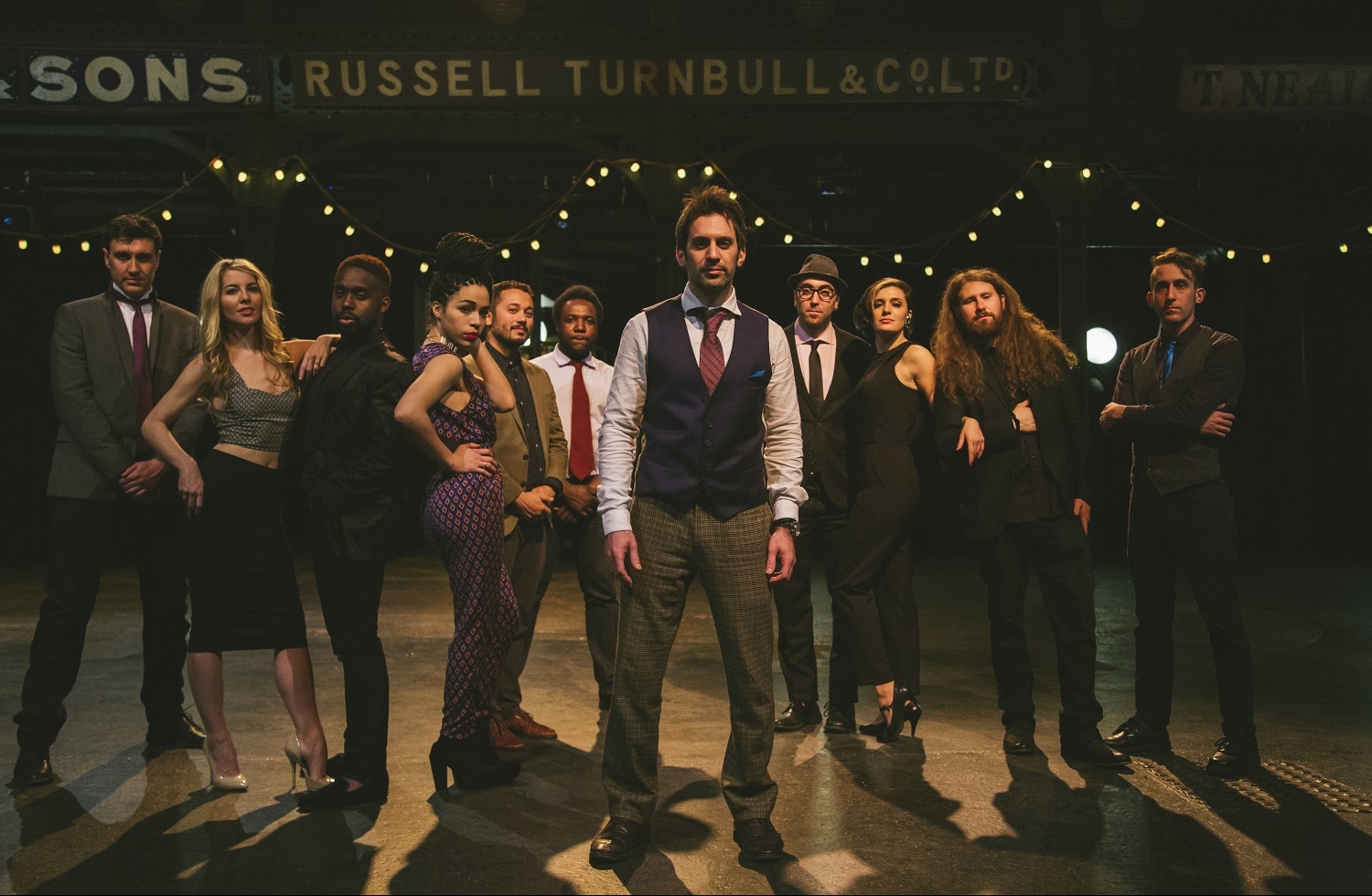“It’s the craziest thing,” Bradlee says. “I had an idea for a project. I wanted to have a lot of singers and musicians involved creating this alternate universe. There are two things that I really love. I love working with talent, bringing out the best that you can. And I also love being creative and changing songs around, rearranging them into a genre of music that I enjoy.
“A big part of PMJ is that whole idea of identifying talent that might not be known around the world. At this point we’ve introduced a lot of new artists. You look at the recent videos, we just released one with Morgan James, who I remember meeting and being amazed by her voice, this phenomenal talent. Back then I think she had maybe three or four thousand Facebook fans, and to look now she’s well over 200 thousand and that’s the result of doing videos and touring with us. Now she can launch her own tours with her own music, and it’s a cool thing to see. By identifying talent and giving them this platform, they’re able to go on and build careers as well.”
One of the most impressive aspects of PMJ’s evolution – and certainly one that gets a lot of attention – is the strength of their online presence. 500 million views, 2 million subscribers. It does make you ponder the nature of music consumption these days. It’s an intriguing dichotomy – maintaining the character of a speakeasy, even while most people are actually enjoying their videos alone in front of a computer screen. As Bradlee explains though, this engagement culminates in their live performances, when fans get to meet other fans often for the first time.
“When we started playing live, I remember thinking ‘God, are we even going to have an audience?’” he says. “You see numbers online and you see comments, but you don’t actually see people face to face. It’s a completely different ballgame. I remember when the first show went up in Toronto, we had a full house, everyone was dressed up in vintage clothing, they all knew every song that we’d done. PMJ concerts have become these events that are also networking opportunities, not just professionally, but for finding friends. That’s a pretty wild thing. In a way it’s transcended the whole Internet, and doing live shows is a way of connecting all these people together.”
With an all-the-trimmings tour stretching from coast to coast, there’s no finer time to dust off your flapper dress and tails, to polish your monocle and prepare to Charleston. Yet his work on projects outside the usual musical pathways, including his remarkable additions to the soundtrack of Bioshock: Infinite, are just as fascinating.
“I think that my generation was the first one to grow up with video games, which are in a lot of ways the first really immersive entertainment. I worked on Bioshock: Infinite, and worked on Sleep No More, the New York show that is more of a theatre piece. In that sense, I’m sure those things informed my judgements on PMJ, and the idea of crafting that universe.
“There’s something that makes it really special. I think all entertainment is escapism, and I think that there’s something really special to be able to go to a show and feel like you’re being transported to another time. That’s exactly the vibe I want for a PMJ show. I want people to feel like they’re in the ‘40s; they’re in Hollywood hanging out with The Rat Pack. Going to a really cool music party, that’s what I want.”
Catching PMJ in the flesh is almost guaranteed to find its place in your gigs of the year list, and as impressive as their video performances may be, dancing a storm in the dark to a battery of weird and wild covers can’t be beat. Even for Bradlee the experience is strange, though he tries not to spend too much time fretting about his unlikely road to success.
“I don’t take too much time to reflect on it, but when I do I’m very awed by this whole crazy story. Sometimes I’ll go out on stage and see all these people, and think back to five or six years ago when I was playing alone in a restaurant. It’s crazy how things change. When I do think about it, I really think of it as a great gift. For anyone that’s creative, it’s one of the best things. We all just want to find an audience.”
BY ADAM NORRIS

